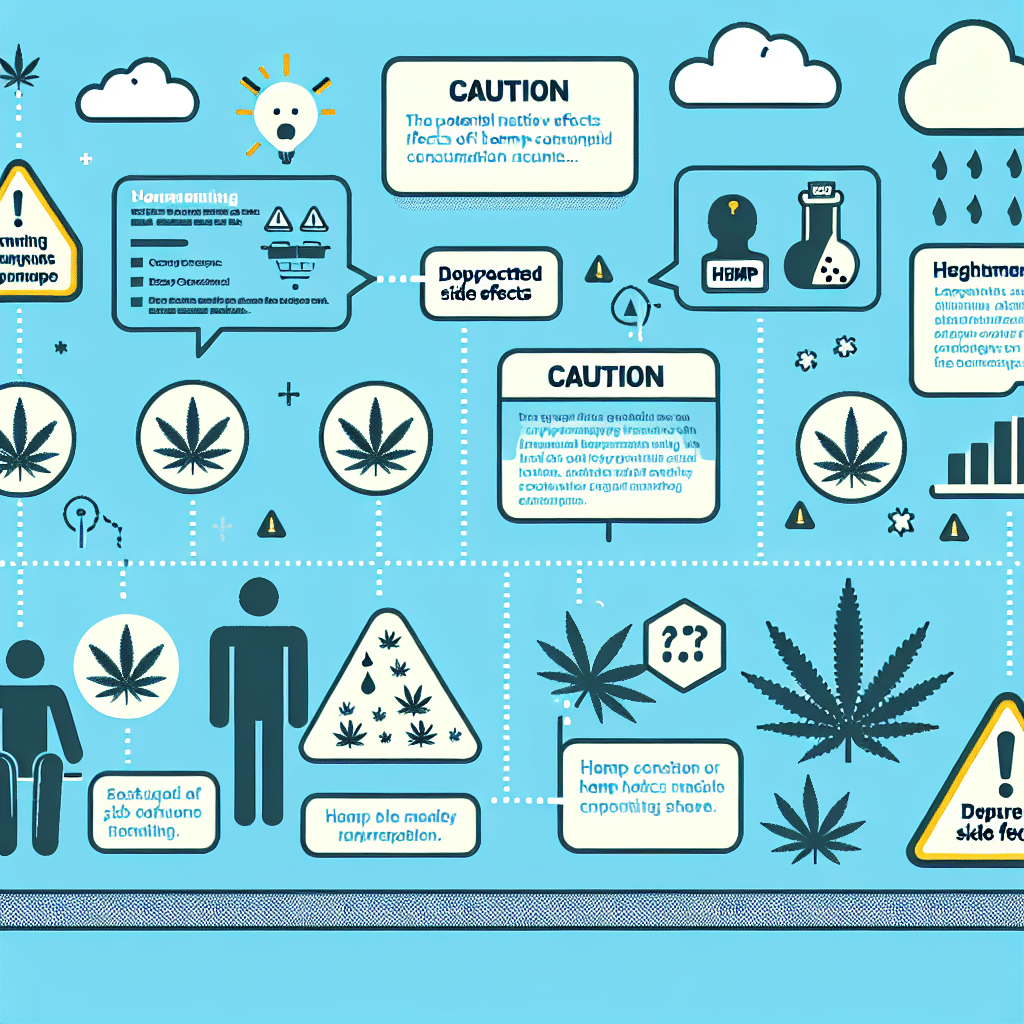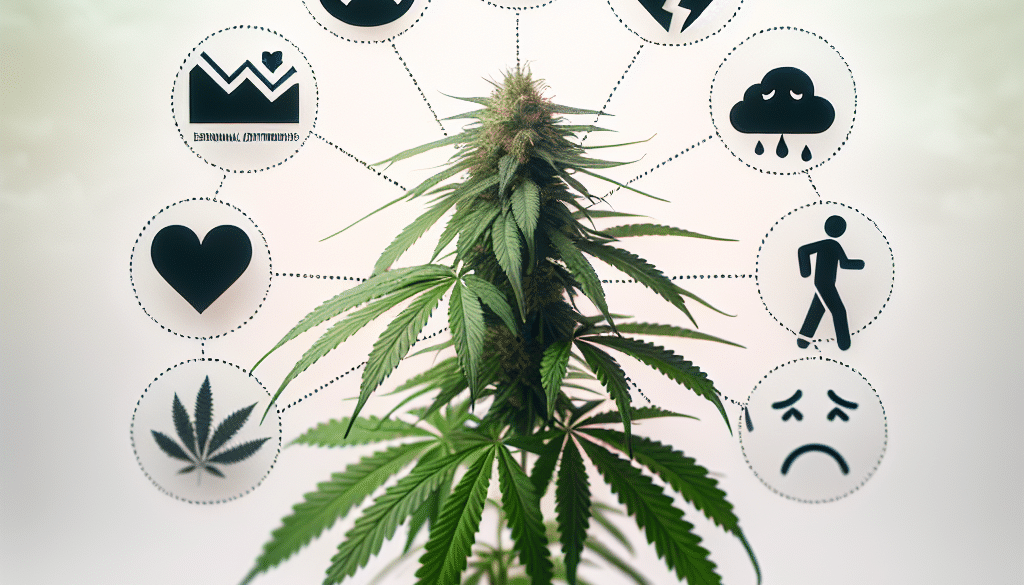Does Hemp Have Any Negative Effects?
-
Table of Contents
- Hemp’s Impact: Understanding the Potential Negative Effects
- Potential Health Concerns Associated with Hemp
- Environmental Concerns Related to Hemp Cultivation
- Economic and Social Implications of Hemp Production
- Case Studies and Research Findings
- Conclusion: Weighing the Pros and Cons of Hemp
- Discover ETprotein’s High-Quality Protein Products
Hemp’s Impact: Understanding the Potential Negative Effects

Hemp, a plant belonging to the Cannabis sativa species, has been cultivated for thousands of years for its fiber, seeds, and oil, which are used in a multitude of products ranging from textiles and construction materials to food and dietary supplements. Despite its many benefits, there is a growing interest in understanding the potential negative effects of hemp, particularly as its use becomes more widespread in various industries. This article aims to explore the possible adverse impacts of hemp on health, the environment, and the economy, supported by research, examples, and statistics.
Potential Health Concerns Associated with Hemp
While hemp is often praised for its nutritional benefits, there are some potential health concerns that consumers should be aware of:
- Allergic Reactions: Some individuals may experience allergic reactions to hemp seeds or other parts of the plant. Symptoms can include skin rashes, respiratory issues, and anaphylaxis in severe cases.
- Cannabinoid Content: Although hemp contains lower levels of THC (the psychoactive compound found in marijuana) compared to its cousin, there is still a risk of accumulating trace amounts in the body, which could potentially affect drug testing results or cause mild psychoactive effects.
- Contaminants: Hemp plants are known to be bioaccumulators, meaning they can absorb heavy metals and other contaminants from the soil. If not grown in clean soil, hemp products could carry these harmful substances.
- Interaction with Medications: Hemp contains compounds that may interact with various medications, altering their effectiveness or leading to adverse effects.
Environmental Concerns Related to Hemp Cultivation
Although hemp is often touted as an eco-friendly crop, there are environmental concerns that need to be addressed:
- Water Usage: Hemp requires a significant amount of water to grow, which could contribute to water scarcity in areas where water resources are already limited.
- Pesticide Use: While hemp is resistant to many pests, large-scale cultivation may lead to increased use of pesticides and herbicides, potentially harming local ecosystems.
- Land Use: The expansion of hemp farming could lead to deforestation or the conversion of land from food to hemp production, which may have implications for food security and biodiversity.
Economic and Social Implications of Hemp Production
The burgeoning hemp industry also has economic and social implications that warrant consideration:
- Market Volatility: As a relatively new commodity, the hemp market is subject to price volatility, which can impact farmers’ livelihoods and the stability of the hemp industry.
- Regulatory Challenges: The legal status of hemp and its derivatives varies by country and region, creating a complex regulatory landscape that can hinder market development and cross-border trade.
- Social Stigma: Due to its association with marijuana, hemp production and use may carry a social stigma, potentially affecting consumer perception and market growth.
Case Studies and Research Findings
Several case studies and research findings highlight the potential negative effects of hemp:
- A study published in the Journal of Agricultural and Food Chemistry found that hemp seeds from plants grown in contaminated soil contained elevated levels of heavy metals, posing a risk to consumers.
- Research by the Water Footprint Network indicates that hemp’s water footprint can be substantial, depending on the region and farming practices, raising concerns about its sustainability in arid areas.
- An economic analysis by the American Farm Bureau Federation revealed the challenges faced by hemp farmers due to market fluctuations and regulatory uncertainty, leading to financial losses for some.
Conclusion: Weighing the Pros and Cons of Hemp
In conclusion, while hemp offers numerous benefits, it is essential to consider its potential negative effects. Consumers should be aware of possible health risks, such as allergic reactions and contaminants. Environmental concerns, including water usage and land use, must be managed responsibly to ensure sustainable cultivation practices. Additionally, the economic and social implications of hemp production require careful navigation to foster a stable and thriving industry. By addressing these challenges, we can maximize the benefits of hemp while minimizing its drawbacks.
Discover ETprotein’s High-Quality Protein Products
If you’re looking for alternative protein sources that align with your health and dietary needs, consider ETprotein’s range of organic bulk vegan proteins. Their products, including rice protein, pea protein, and various seed proteins, are non-GMO, allergen-free, and boast a neutral taste, making them an excellent choice for those seeking sustainable and health-conscious options.
About ETprotein:
ETprotein, a reputable protein and L-(+)-Ergothioneine (EGT) Chinese factory manufacturer and supplier, is renowned for producing, stocking, exporting, and delivering the highest quality organic bulk vegan proteins and L-(+)-Ergothioneine. They include Organic rice protein, clear rice protein, pea protein, clear pea protein, watermelon seed protein, pumpkin seed protein, sunflower seed protein, mung bean protein, peanut protein, and L-(+)-Ergothioneine EGT Pharmaceutical grade, L-(+)-Ergothioneine EGT food grade, L-(+)-Ergothioneine EGT cosmetic grade, L-(+)-Ergothioneine EGT reference grade and L-(+)-Ergothioneine EGT standard. Their offerings, characterized by a neutral taste, non-GMO, allergen-free attributes, with L-(+)-Ergothioneine purity over 98%, 99%, cater to a diverse range of industries. They serve nutraceutical, pharmaceutical, cosmeceutical, veterinary, as well as food and beverage finished product distributors, traders, and manufacturers across Europe, USA, Canada, Australia, Thailand, Japan, Korea, Brazil, and Chile, among others.
ETprotein specialization includes exporting and delivering tailor-made protein powder and finished nutritional supplements. Their extensive product range covers sectors like Food and Beverage, Sports Nutrition, Weight Management, Dietary Supplements, Health and Wellness Products, and Infant Formula, ensuring comprehensive solutions to meet all your protein needs.
As a trusted company by leading global food and beverage brands and Fortune 500 companies, ETprotein reinforces China’s reputation in the global arena. For more information or to sample their products, please contact them and email sales(at)ETprotein.com today.












